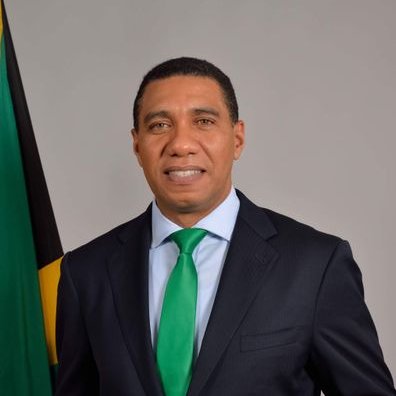By Linda Nwoke
Jamaica is often described as a Caribbean paradise, a land of vibrant cultures, including famous
reggae music, mouthwatering cuisine, and lush landscapes, with people so proud of their heritage
that they carry their island’s essence around the world wherever they go.
They are a people driven by ambition and love for their homeland. They stand as the epitome of
resilience and resourcefulness anywhere they live across continents, often united by their shared
heritage.
Through their success stories, they’ve made their mark internationally, especially in New York
City, where they also occupy enviable positions in government. At home, Jamaica’s Diaspora’s
impact is profound in their country. Most of their remittances support the country’s economies,
initiatives, and culture.
In a quest to foster closer ties with its overseas citizens and tap into the vast wealth of knowledge
and resources that abound in the country, Jamaican Prime Minister Hon. Andrew Holness
engaged in an informative session with members of the Jamaican Diaspora located in New York
City in August, focusing on discussions towards strengthening the relationship between the
homeland and its global citizens.
Issues arising with Jamaicans Abroad
The Jamaican Diaspora is scattered across the globe. There are constant efforts, such as the
recent dialogues with the Prime Minister, revolving around topics that significantly affect
Jamaicans living abroad and those on the island.
Participants discussed various issues, including opportunities, agriculture, health care, and other
themes that underscored the pivotal role that the Diaspora can play in propelling Jamaica towards
a country with sustainable development.
Some key issues discussed during the meeting include the areas of focus raised by Norma Jarrett,
focusing on the theme of agriculture. She was curious about the factors affecting the country’s
growth in agriculture, given that the sector is deemed one of the backbones of Jamaica’s
economy.
Unfortunately, the sector records a decline in using locally grown or produced agricultural
products. Yet, the importation of farm products from other countries has steadily increased over
the years.
When presented, the Prime Minister paraphrased the question, why isn’t Jamaica’s agriculture at
the point where it could substitute imported goods and increase its production?
In addressing the issue, Hon. Holness explained the achievements that have been recorded thus
far in the sector, especially towards increasing the amount of irrigated land by 3% over the years.
Overall, he recognizes the need for more investment in agricultural infrastructure within the
country.
“First, we increased the irrigated lands from 12% in one year to 15% of our lands. To increase
agricultural production, it’s not just about land. We must put consistent water on the land. Now,
only 15% of our arable land is irrigated presently, and we have managed to, in the last couple of
years, add 3% more irrigated land through two major projects”, says Prime Minister Holness.
Educational Support in Jamaica
Another pertinent question discussed is the availability of educational support for Jamaican
students back home. The Prime Minister explained that over the past years, scholarships have
been awarded through support from various mechanisms and systems of funding.
He said, “We spoke about scholarships from the fundraising at the gala last year. That is an
independent program run through the consulate here, and the Ministry of Finance manages all
the scholarships offered to Jamaican students by international partners.”
No single scholarship mechanism exists because it develops organically; he explained that most
scholarships are conceptualized after people are asked to fund them. “Jamaica has operated
traditionally; we just offer scholarships, and they are granted”, says Prime Minister Holness.
However, over the years, the process has changed slightly in the administration of the public
sector scholarship, called the Marcus Garvey Scholarship. The scholarship is offered annually to
train people in the public sector to ensure a constant buildup of the most technically savvy civil
servants, who will continue to ensure that the government receives the best advice.
“It started two years ago, where you can go to Johns Hopkins or Penn for top-level education to
ensure that we’re getting the best and helping our public servants to develop the best
opportunities”. he says.
He encouraged Jamaicans to actively participate in providing educational support by donating
funds through the Jamaica Education Trust or the National Education Trust. Both schemes are
designed to support the Diaspora and Jamaicans who want to keep supporting the educational
system. The role of the bodies ensures proper management, direction, and alignment of policies.
The Minister also explained that the Ministry of Finance deals with foreign government-
sponsored scholarships that make some payments available through the Ministry of Finance,
targeting some public sector personnel. “So, you have two options. Going with the National
Education Trust would be easier to deal with because they are literally structured to treat with
what you’re proposing”, says Prime Minister Holness.
Improving the Health Care System
Concerning improving Jamaica’s health care system, the Prime Minister acknowledged numerous
challenges facing the sector, especially with equipment, the time to service, waiting time, level of
care, and technology. All these issues are considered crucial and are often found in many
developing countries.
However, the government is assuredly introducing innovative ideas. He said, “Minister Tufton
has put in place several projects to reduce waiting time, increase patient care, and introduce
greater technology, particularly for testing”.
He shared two areas of investment that will improve the health system’s capacity for treating
patients with care. The first is the design of a program that supports hospital infrastructure
improvement with support from the IDB, which led to the complete renovation of the Cornwall
Regional Hospital building.
“The building is over 50 years old, but we have renovated it to treat it for general care. We use
cutting-edge technology for oncology, accidents, emergencies, and critical care”.
The Chinese government also gifted Jamaica a new adolescent children’s hospital. It is intended
to be a 200-bed facility, with specialist services that will be regionally available for the
Caribbean and Latin America.
The Honorable Prime Minister explained that the new projects would take some of the burden
off the Bustamante Children’s Hospital, Jamaica’s only children’s hospital. “We are expanding
Bustamante”, he said. “We have the construction of a new ward and new facilities there. The
Spanish Town Hospital is going to be refurbished. And we are building new wards there. It will
be a massive overhaul, and we intend to break ground for that in September next month”, he
added.
The Prime Minister explained that although the health care in Jamaica is different from first-
world health care, he is confident that they produce some of the best doctors in the world. “We
have some of the best nurses and technical personnel. And we are developing the capacity to
intervene should there be a critical case”, he concluded.
Conversations of this kind bolster the power of innovation, unity, and shared vision. Thus, by
engaging with the Diaspora in meaningful ways, Jamaica has taken a significant stride towards
harnessing its global potential and creating




